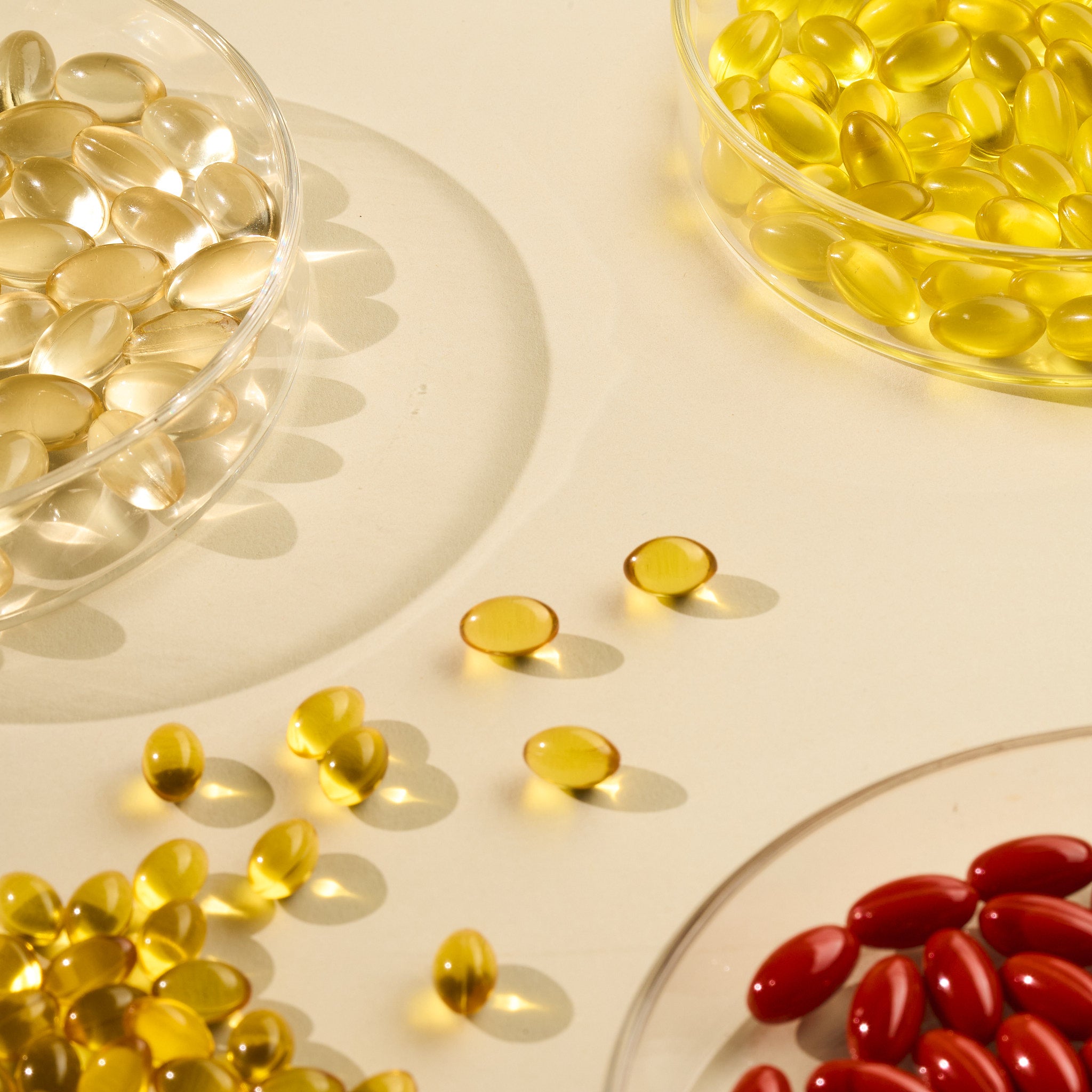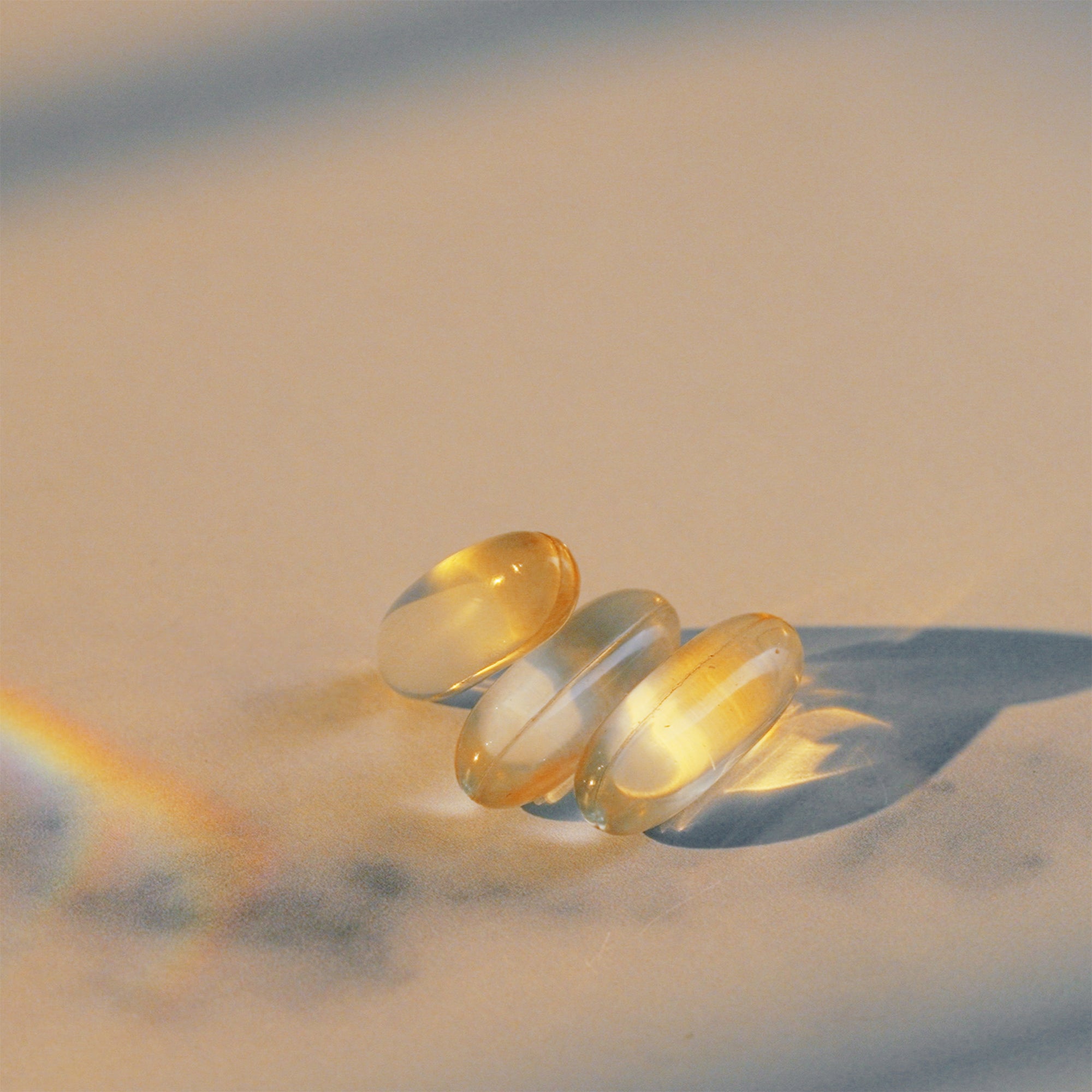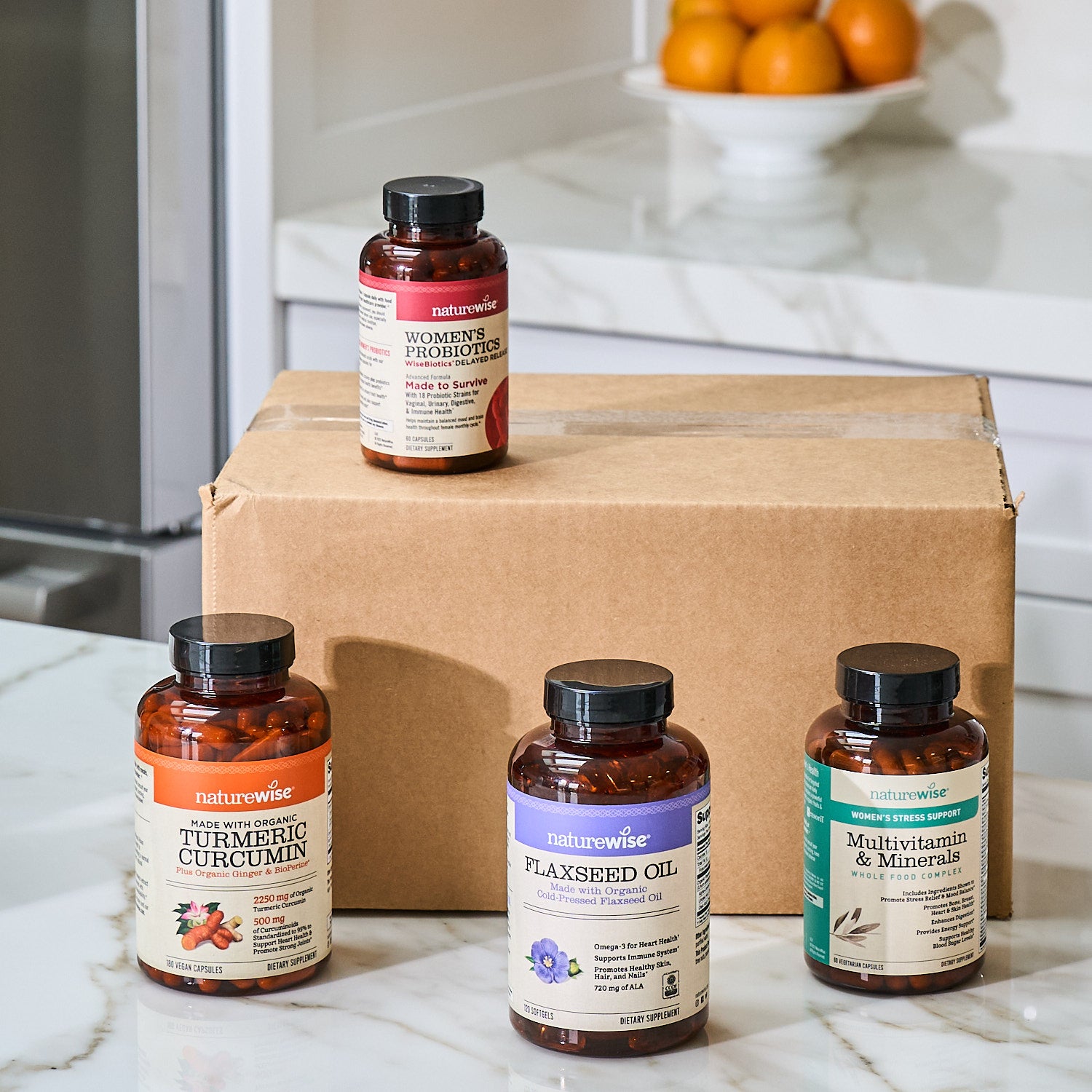Some things are just better together. Peanut butter is great on its own, but once it was combined with jelly, it became part of an iconic sandwich that has been a staple for generations. Similarly, Omega-3 fatty acids have many health benefits on their own, but when combined with Vitamin E, it becomes even better.
Omega-3 Fatty Acids: What They Do
Made up of three types of fatty acids, Omega-3 consists of alpha-linolenic acid (ALA), eicosapentaenoic acid (EPA) and docosahexaenoic acid (DHA). EPA and DHA are found in fish while ALA are found in plants. Although Omega-3s are necessary to perform important functions in the body, we aren’t able to produce the amount we need on our own. Omega-3s have been known to support healthy inflammatory responses and immune responses, mental acuity, encourage bone strength and normal cholesterol levels, which are crucial for a healthy cardiovascular system.
Benefits of Vitamin E
Vitamin E is a vital nutrient that supports vision, reproduction, and blood, brain and skin health. Plus, its antioxidant properties promote normal cell signaling, heart health and encourage normal inflammatory responses.
Vitamin E with Omega-3
You may have noticed that vitamin E and omega-3 have similar benefits, many of which are able to complement each other. For example, vitamin E is a fat-soluble vitamin and is easier for the body to absorb when it’s consumed with a fat, like omega-3! When you combine the antioxidant and fat-soluble nature of vitamin E with omega-3 fatty acids, their individual strengths compound into additional benefits.
One study found that supplementing these together proved to be a good combination to gain both antioxidants and encourage normal inflammatory responses. While omega-3 strengthens the body’s defenses, vitamin E enhances its ability to repel harmful invaders. Additional studies have shown that supplementing vitamin E and omega-3 together helps support normal cholesterol levels and overall heart health. Combining omega-3 fatty acids with vitamin E may also help protect these valuable minerals from becoming rancid and losing their benefits.
Who Needs Omega-3s?
Because the body isn’t able to make omega-3 fatty acids, we must consume them from food or take a supplement. For many people, even those who love fatty fish like salmon, it isn’t realistic to eat the recommended two servings each week. Taking NatureWise Omega-3 Fish Oil 1,000mg + Vitamin E makes it easy to get enough omega-3 in your diet whether you like fish or not.
Although everybody requires omega-3s, they are especially beneficial for some people:
- Mood Improvement: Research studies indicate that omega-3 supplements may have a positive impact on symptoms of depression and anxiety.
- Pregnant Women: Omega-3s are essential for healthy growth and development of an infant’s brain. Adequate intake of omega-3s have been associated with potential benefits such as improved cognitive development, enhanced communication and social skills, reduced behavioral issues and a lower risk of developmental delay.
- Age-Related Conditions: Optimal levels of omega-3 fatty acids have been associated with a potential reduction in cognitive decline and a lower risk for memory disorders.
How NatureWise is Different
Each serving of NatureWise Omega-3 Fish Oil 1,000mg + Vitamin E is formulated by experts with 1,000 milligrams of omega-3s, consisting of 600 EPA and 400 DHA, for maximum benefits. NatureWise Omega-3 Fish Oil 1,000mg + Vitamin E is only made with high quality ingredients which is why you won’t find any wheat, gluten, dairy, corn, eggs, tree nuts or peanuts.
References
- Mahdi Sepidarkish, Mojgan Morvaridzadeh, Maryam Akbari-Fakhrabadi, Amir Almasi-Hashiani, Mahroo Rezaeinejad, Javad Heshmati. “Effect of omega-3 fatty acid plus vitamin E Co-Supplementation on lipid profile: A systematic review and meta-analysis, Diabetes & Metabolic Syndrome: Clinical Research & Reviews.” Volume 13, Issue 2, 2019, Pages 1649-1656, ISSN 1871-4021, https://doi.org/10.1016/j.dsx.2019.03.018.
- Cleveland Clinic. “Omega-3 Fatty Acids.” 2022. https://my.clevelandclinic.org/health/articles/17290-omega-3-fatty-acids
- Hjalmarsdottir, Freydis. “17 Science-Based Benefits of Omega-3 Fatty Acids.” Healthline. 2023. https://www.healthline.com/nutrition/17-health-benefits-of-omega-3#TOC_TITLE_HDR_3
- Mayo Clinic Staff. “Vitamin E.” Mayo Clinic. 2020. https://www.mayoclinic.org/drugs-supplements-vitamin-e/art-20364144
- Kubala, Jillian. “8 Unique Benefits of Vitamin E.” Healthline. 2023. https://www.healthline.com/health/all-about-vitamin-e
- McNight, Clay. “Fish Oil & Vitamin E.” Healthfully. 2011. https://healthfully.com/fish-oil-vitamin-e-4319863.html
















